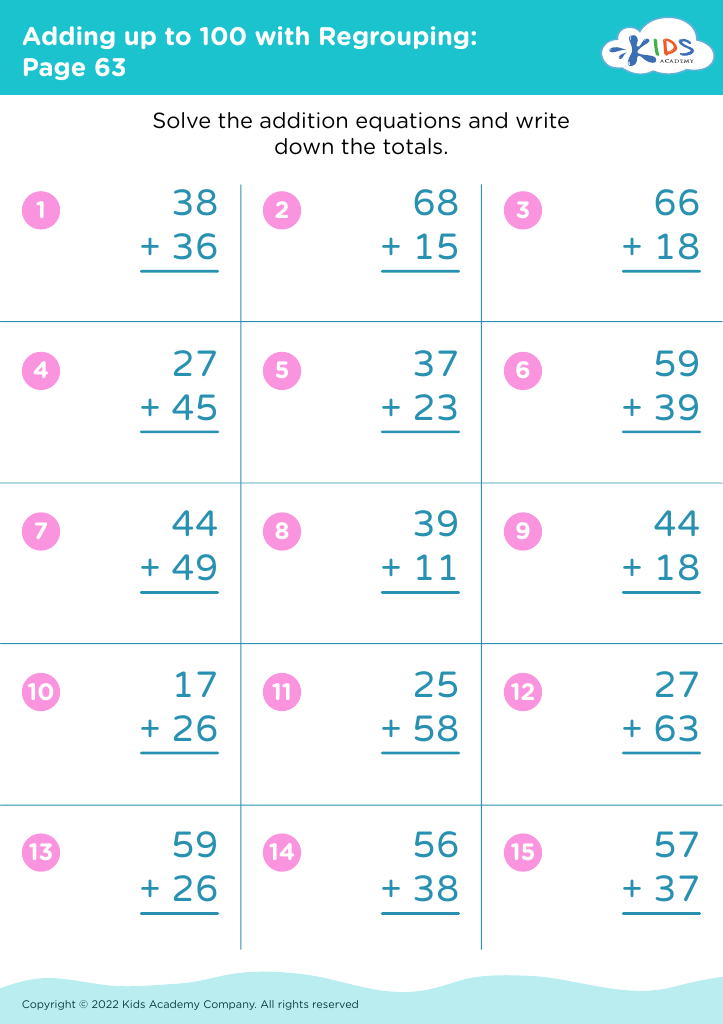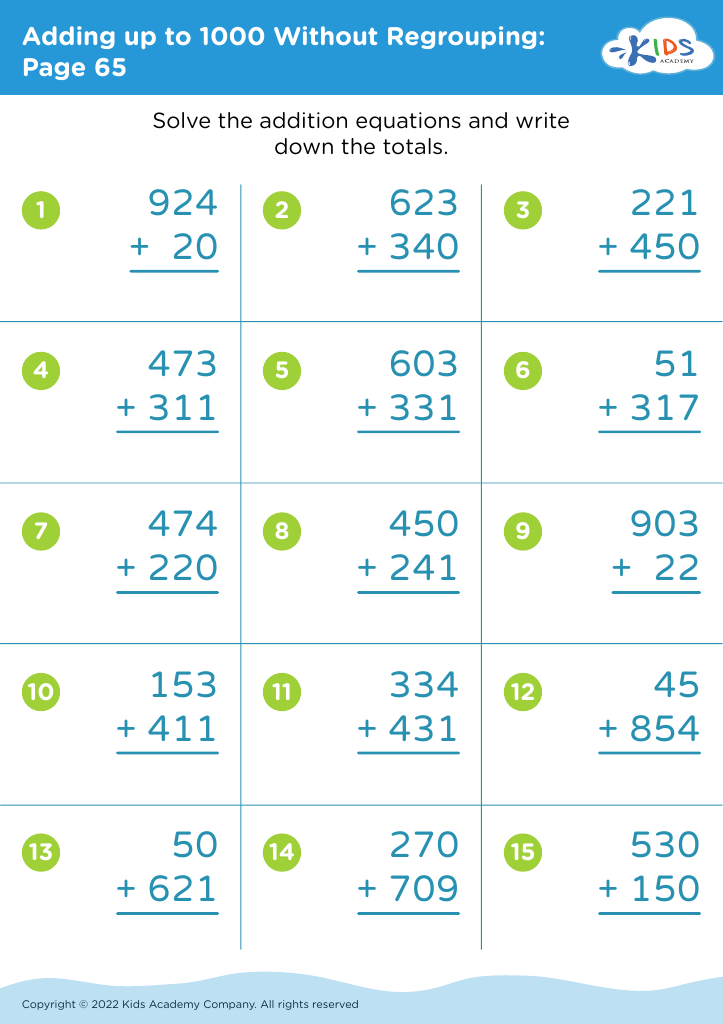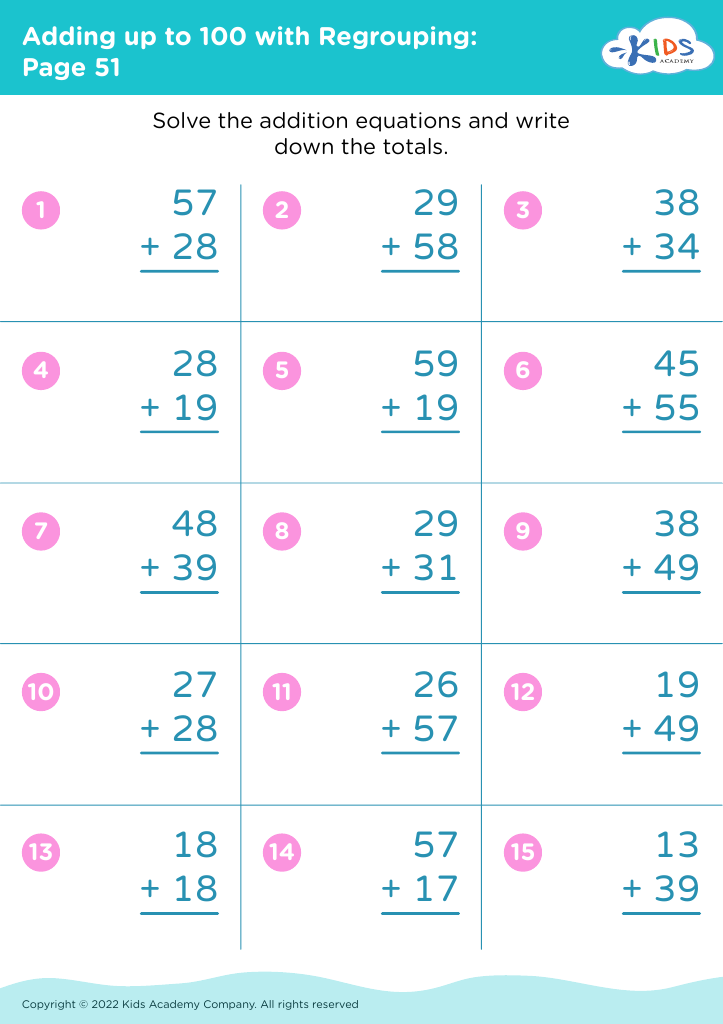Practice problem-solving Addition Worksheets for Ages 7-8
4 filtered results
-
From - To
Enhance your child's math skills with our engaging problem-solving addition worksheets designed specifically for ages 7-8. These worksheets provide a fun and interactive way for young learners to practice addition while developing critical thinking abilities. Each sheet is crafted to challenge students with real-world scenarios, allowing them to apply their addition knowledge in meaningful ways. With a variety of problems that promote engagement and learning, kids will master addition concepts through enjoyable exercises. Perfect for home or classroom use, these resources ensure your child builds a solid foundation in mathematics while enjoying the learning process! Explore our collection today!
Parents and teachers should prioritize practice problem-solving in addition for children ages 7-8 as it lays a crucial foundation for their mathematical understanding and critical thinking skills. During this stage, students encounter more complex addition concepts, such as two-digit addition and word problems, which require not just rote memorization but also the application of strategies to arrive at solutions. Engaging in problem-solving helps children develop number sense and learn to approach challenges systematically.
Moreover, practicing addition problem-solving encourages perseverance and resilience. Children learn to face difficulties, analyze problems, and find multiple ways to arrive at the correct answer, fostering a growth mindset. This resilience is vital not only in math but also in various aspects of life, where problem-solving skills are essential.
Additionally, being proficient in addition directly impacts a child's confidence and self-esteem. As they become more adept at solving addition problems, they are likely to engage more positively in math-related activities, leading to a greater appreciation for the subject. For parents and educators, creating a supportive environment that emphasizes problem-solving in addition can inspire a lifelong love for learning and reasoning, shaping well-rounded individuals prepared to navigate complex situations successfully.




















